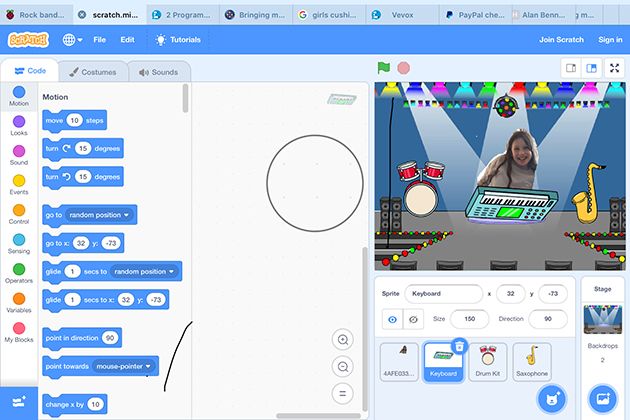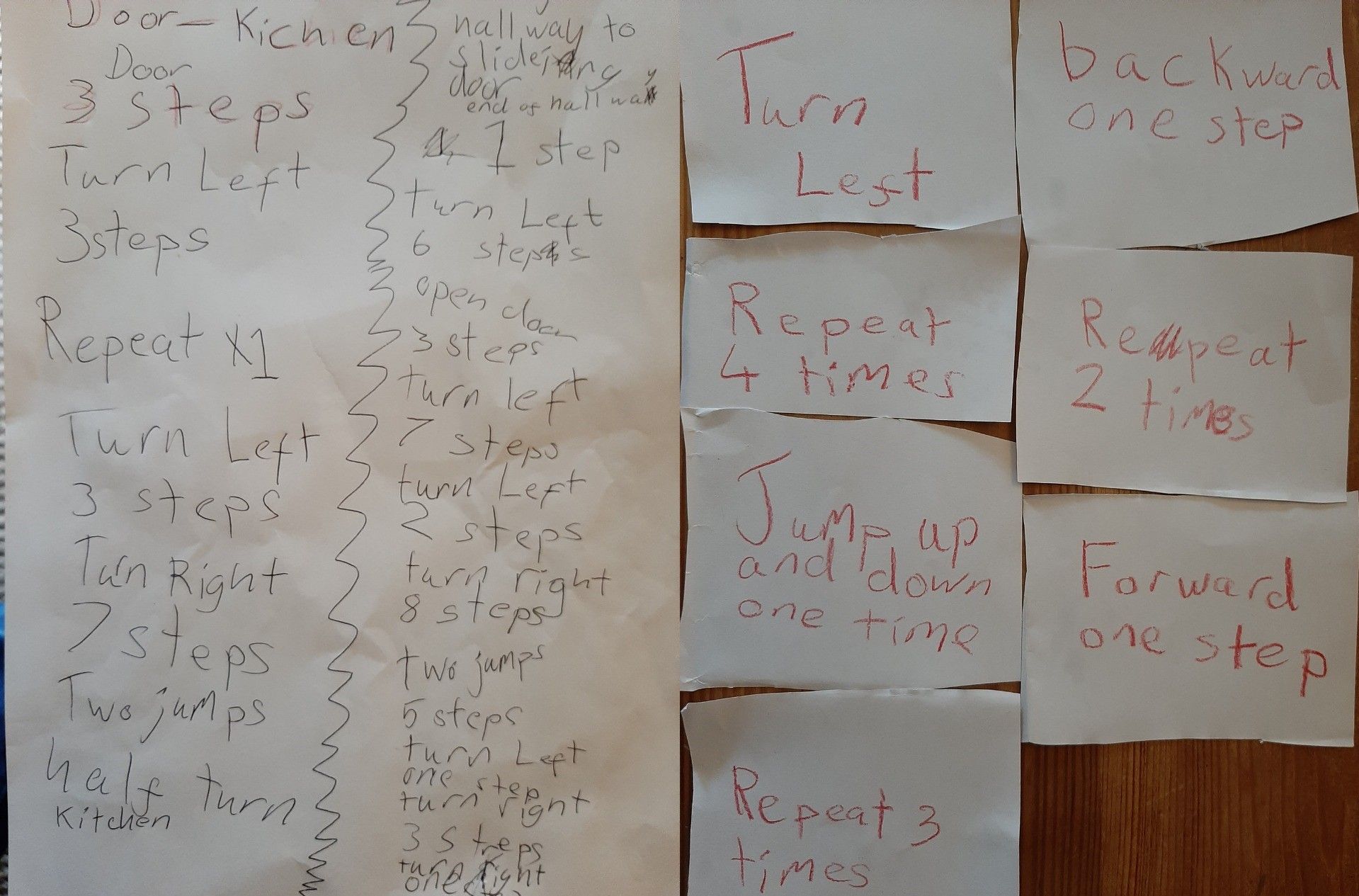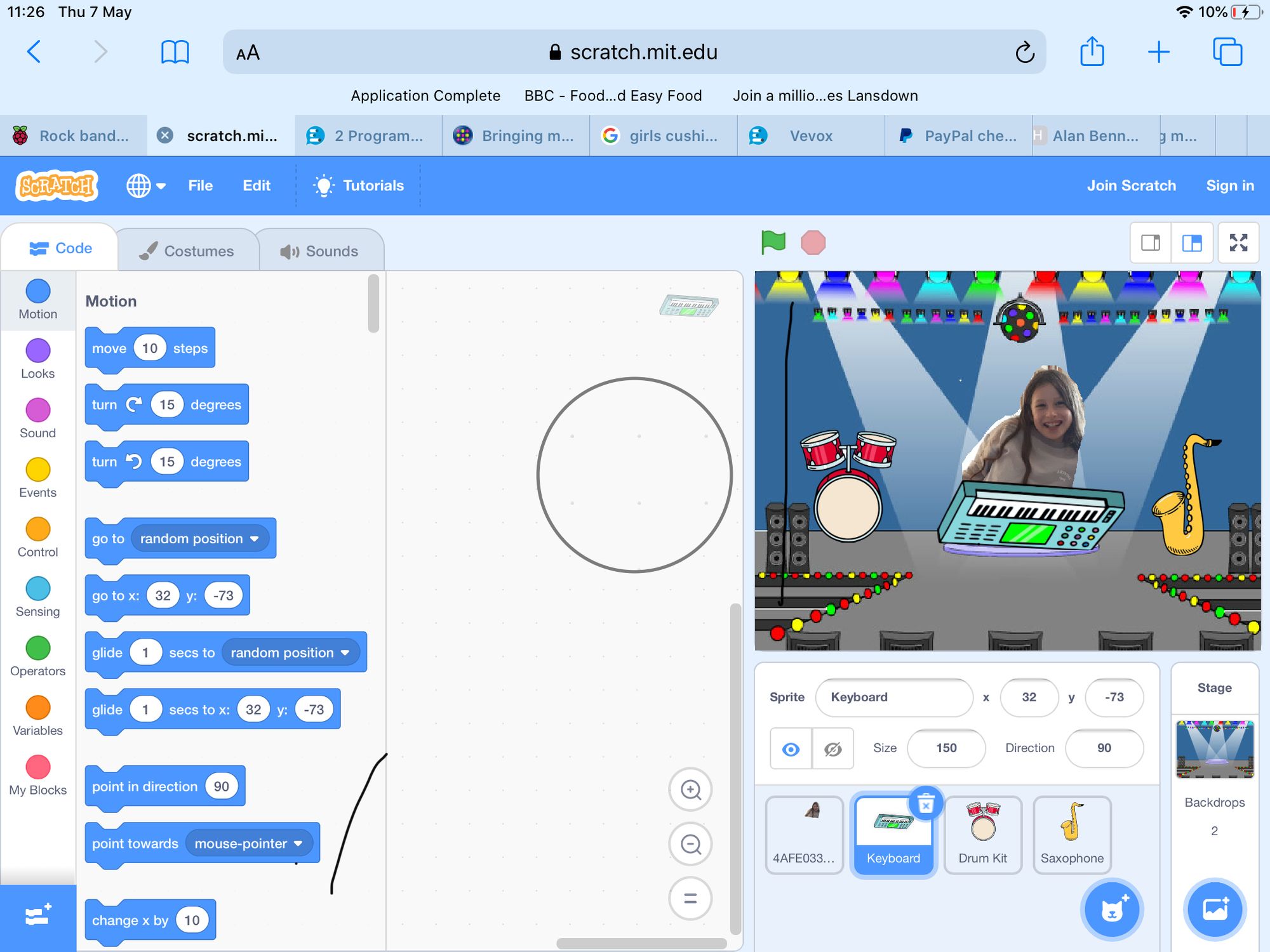Home teaching week 4
18 May 2020

Hello! We hope you enjoyed last week's installment of our Home teaching programme.
We've been working hard to get lots of new activities assembled for you, and you've been busy sending in more awesome pictures!
Will Rogers and his two children - Evie (10) and Juliette (7) - have been working on projects across two different key stages.
Juliette has been creating algorithms for the 'Human robot' unplugged activity from key stage 1...

...while Evie formed a rock band in Scratch (that's her on the keyboard below). Well done to both of you!

If you want to see your project featured in next week's article, tag @WeAreComputing on Twitter, or send us an email with your pictures.
New activities for week 4
To all teachers and parents:
- If you've just come across our resources, don't worry! You can start from the beginning of our multi-week schemes of work.
- You can also get help with activities by attending one of our friendly Q&A sessions for all key stages. You can find timings for these on the individual key stage homepages.
Key Stage 1
- In this Building Blocks activity, your child/children will create a simple model, then take photos to create instructions (an algorithm) for others to try and recreate their model. By removing one block at a time, they are decomposing the problem into manageable steps.
Key Stage 2
- Learn about the concept of selection by creating a Chatbot in Scratch. You'll be able to programme a character that can talk to you!
Key Stage 3
- Check out our new Team Chooser resource: you'll learn how to create two random teams from a list of players in Python.
- If you're still developing your app, check out lesson 4. This week is all about user input!
- For lesson 2 of our Cybersecurity scheme of work, learn about the social engineering tactics deployed by cybercriminals to dupe users into giving away data that could lead to further crime!
Key Stage 4
- In Maths & Logic in Computer Science, you'll explore mathematical operators to combine and compare numbers, and combine relational operators with Boolean logic to create a "number guessing game".
- In Boolean Logic on the Isaac Computer Science platform, you'll be looking at logic diagrams and practicing your layouts using circuit verse.
- In Networks, you'll explore client server and P2P network models, as well as gaining an understanding of network hardware.
- On our Basics of Python programming course this week, Martin introduces us to iterables - understanding lists of data and how to use them in your programmes.
- On our Algorithms and advanced Python programming course, you'll explore the 'merge sort' algorithm.
Key Stage 5
- If you are an A level student, or a GCSE student transitioning to A level this September, try our Object-Oriented Programming in Python course. This week, you'll be working on your adventure game, and will use aggregation to put an object within another object. You'll then use your knowledge to place enemy characters inside your labyrinth/maze/dungeon/room!